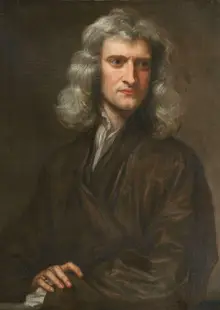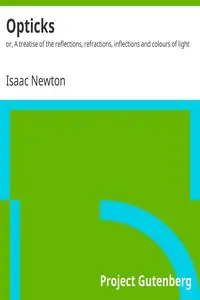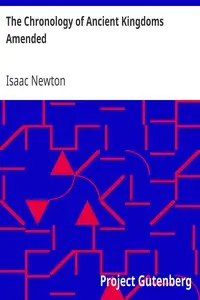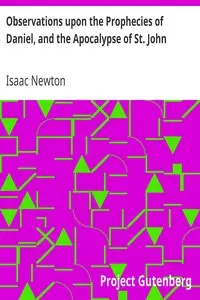
Isaac Newton
Sir Isaac Newton was an English polymath active as a mathematician, physicist, astronomer, alchemist, theologian, and author who was described in his time as a natural philosopher. He was a key figure in the Scientific Revolution and the Enlightenment that followed. His pioneering book Philosophiæ Naturalis Principia Mathematica, first published in 1687, consolidated many previous results and established classical mechanics. Newton also made seminal contributions to optics, and shares credit with German mathematician Gottfried Wilhelm Leibniz for formulating infinitesimal calculus, though he developed calculus years before Leibniz.

Opticks : $b or, A treatise of the reflections, refractions, inflections and colours of light
Discover a world where light bends and bounces, revealing the secrets of physics through careful observation.
By Isaac Newton

The Chronology of Ancient Kingdoms Amended To which is Prefix'd, A Short Chronicle from the First Memory of Things in Europe, to the Conquest of Persia by Alexander the Great
Embark on a journey through time to explore the forgotten ages of kings and empires, where historical mysteries get unraveled and timelines get rewritten.
By Isaac Newton

Observations upon the Prophecies of Daniel, and the Apocalypse of St. John
In the early 1700s, a prominent thinker dissects biblical prophecies to reveal their historical importance and what they might mean for times yet to come.
By Isaac Newton
